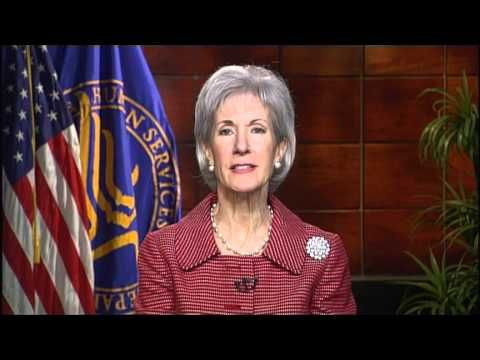Obama Proposes 2014 Health Budget, Protects Medicaid, Cuts $400 Billion Over 10 Years

Though Congress has yet to agree on this year's budget, the administration Wednesday proposed $80.1 billion in federal health spending in fiscal year 2014.
An increase of nearly $4 billion over 2012, the budget proposal for the U.S. Department of Health and Human Services includes money to support the Affordable Health Care Act's 2010 mandate for health insurance exchanges, in addition to $130 million to expand mental health services. Of that new money, $55 million would improve community surveillance of mental health issues among students, following the school shooting in Newton, CT, that left 28 dead in late 2012.
In classic political triangulation, President Obama offered this proposal — health care playing a central role in the federal budget debate — to position himself as a centrist, placating critics who say he's not done enough to address high budget deficits and the national debt.
As HHS Secretary Kathleen Sebelius announced the budget proposal in Washington, DC, the president's "backbenchers" voiced their support more truculently — with a megaphone, outside the White House. Leading the left-wing of the Congress, Sen. Bernie Sanders, an independent from Vermont, loudly criticized the president's budget, attempting to drag the body politic back toward the left in this congressional tug-of-war.
"When Barack Obama was running for president in 2008, he said that he would not cut Social Security," Sanders said. "We want the president to remember what he said and not go back on his word!"
The White House proposed cutting $400 billion from Medicare, Medicaid and other federal health programs during the next 10 years, through "payment innovations" and other gains in efficiency.
"The White House tells us they want to defend the middle class — that's their mantra," said Sanders. "If you want to defend the middle class you don't cut Social Security, you don't cut Medicare, and you don't cut benefits for disabled vets."
Politico reported Wednesday that Obama's offer to cut such health care programs was nothing new, however, similar to a recent overture to U.S. House Speaker John Boehner, a republican from Ohio, to cut $370 billion over the same time frame. Speaker Boehner said Obama deserves some credit for cutting health entitlements in his proposal but said he hopes the president won't "hold hostage" the cuts by tying them to plans to raise revenue.
Regarding Obama's cost-savings strategy, the pharmaceutical industry — with a two to one ratio of lobbyists to Congressmen — opposes a plan to save money by requiring wealthier seniors to pay higher Medicare Part B and D premium costs, a proposal that also includes drug rebates in Part D for poorer seniors.
See Medical Daily story on younger, uninsured more likely to skip prescription medications.
The health budget also suggests changes to the stable of private insurance offerings known as Medigap, labeled A through N, that cover gaps between price-fixed Medicare payments and higher private health care costs. As part of the general overhaul of America's health care system, Medicaid would be exempt from spending cuts as Obama entreats more states to accept expansion of the federal health program.
Presently, as sequestration squeezes automated cuts from the federal budget, the National Institutes of Health, NIH, which receives 28 percent of the HHS budget, is facing cuts right now that may cost more than 20,000 jobs and an estimated $3 billion in annual economic activity.
Visit HHS to view Wednesday's HHS budget press conference or follow Sebelius on Twitter: @HHSGov.
Published by Medicaldaily.com



























